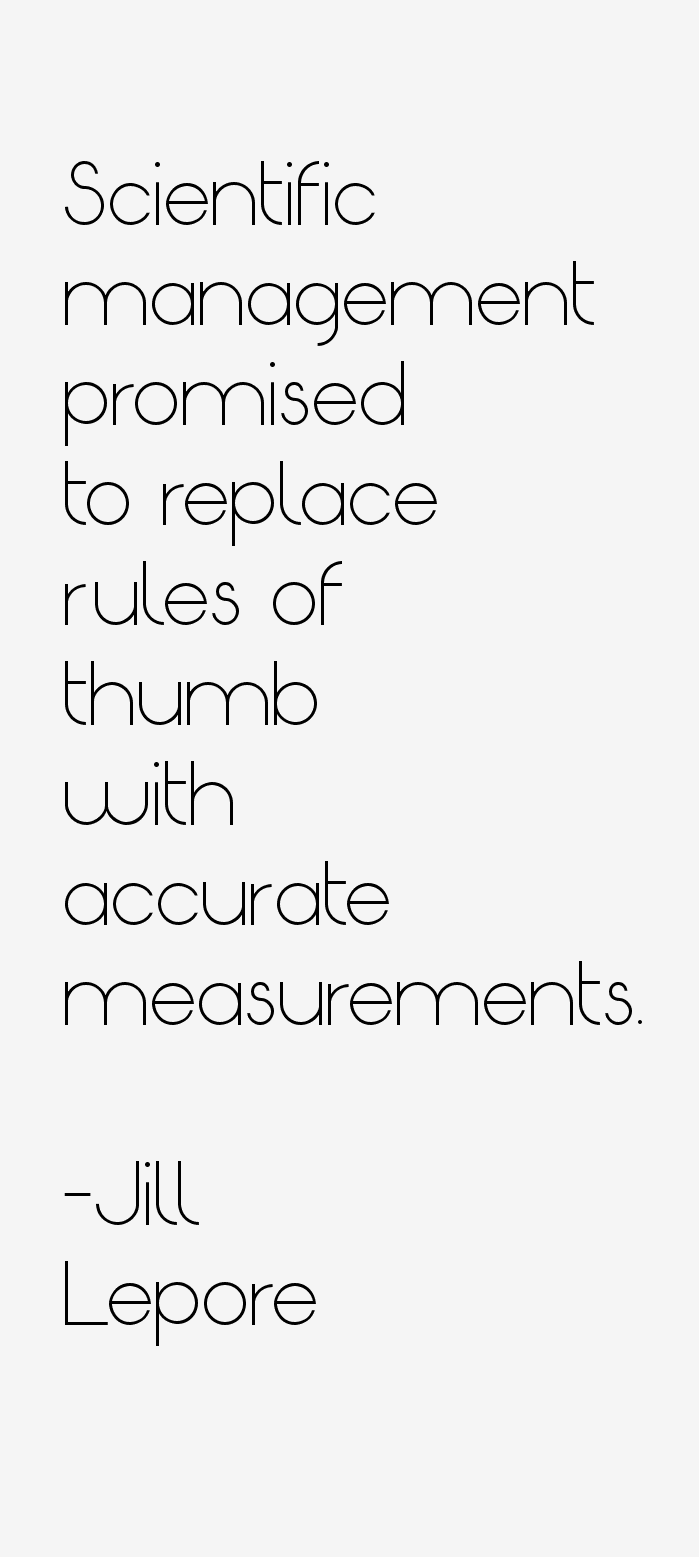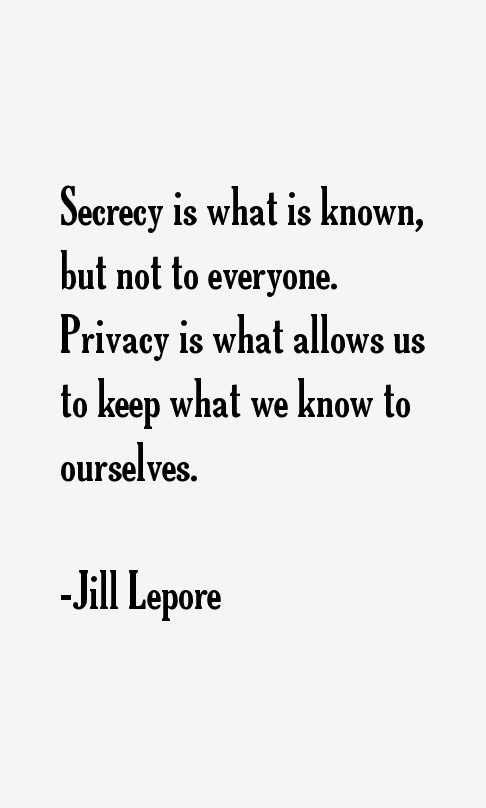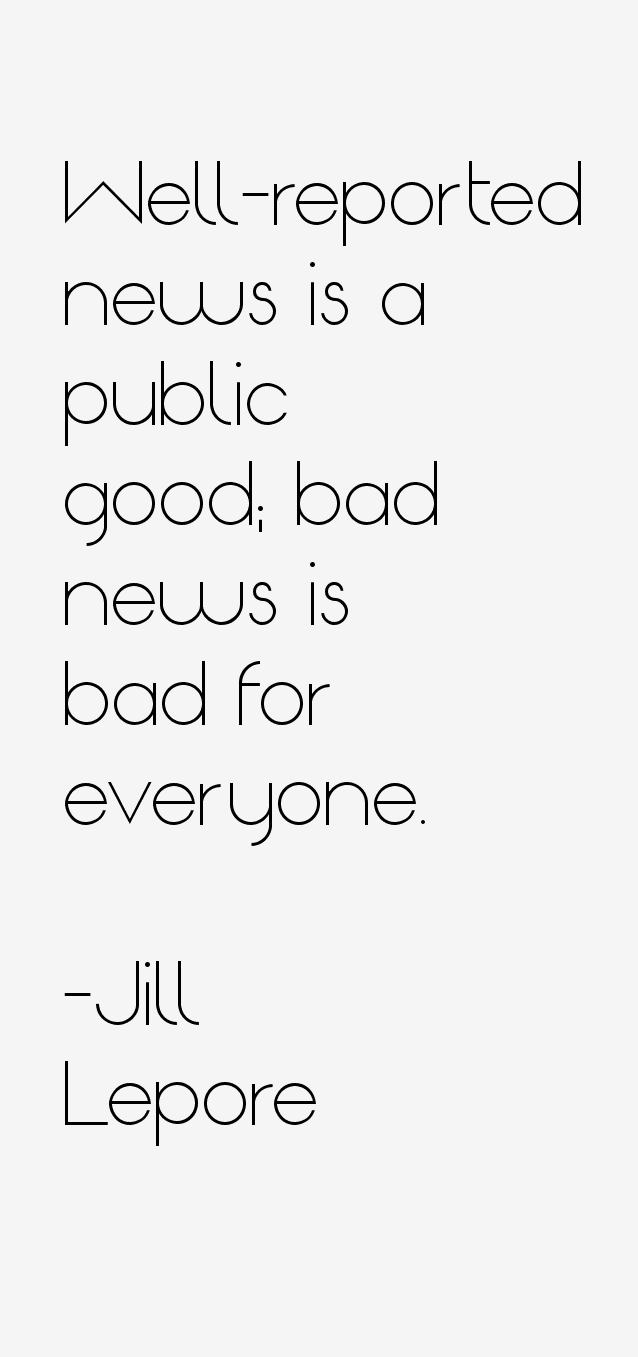Jill Lepore Quotes & Sayings (Page 3)
Jill Lepore quotes and sayings page 3 (historian). Here's quote # 21 through 30 out of the 78 we have.

“Scientific management promised to replace rules of thumb with accurate measurements.”

“Secrecy is what is known, but not to everyone. Privacy is what allows us to keep what we know to ourselves.”

“Well-reported news is a public good; bad news is bad for everyone.”

“As a matter of historical analysis, the relationship between secrecy and privacy can be stated in an axiom: the defense of privacy follows, and never precedes, the emergence of new technologies for the exposure of secrets.”

“Conservatism cherishes tradition; innovation fetishizes novelty. They tug in different directions, the one toward the past, the other toward the future.”

“Desktop computers - boxes inside boxes - began appearing in those cubicles in the mid-eighties, electrical cords curling on the floor like so many ropes.”

“Historians once assumed that when childhood mortality was high, people must not have loved their children very much; it would have been too painful. Research has since proved that assumption wrong.”
“History is hereditary only in this way: we, all of us, inherit everything, and then we choose what to cherish, what to disavow, and what to do next, which is why it's worth trying to know where things come from.”
“I was obsessed with George Orwell for years. I remember going to the town library and having to put in interlibrary loan requests to get the compilation of his BBC radio pieces. I had to get everything he ever wrote.”
“It feels silly to watch endless hours of winter sports every four years, when we never watch them any other time, and we don't even understand the rules, which doesn't stop us from scoring everyone, every run, every skate, every race.”
Jill Lepore Quotes Rating
No Ratings Yet
Leave A Comment
























